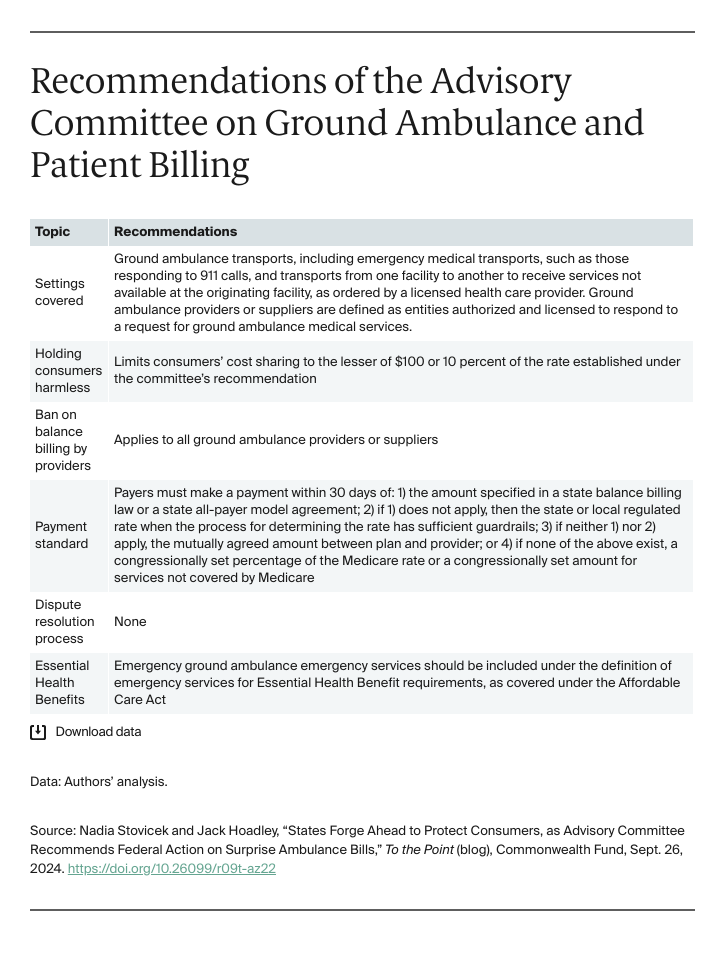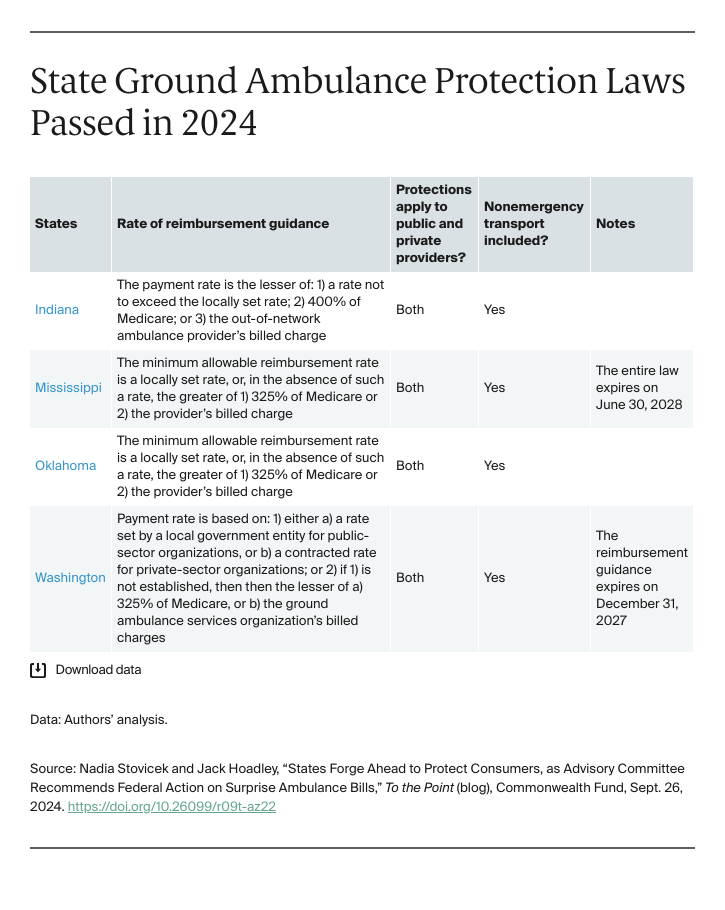The Advisory Committee on Ground Ambulance and Patient Billing (GAPB committee) was created as part of the No Surprises Act (NSA), a federal law that prevents surprise billing for most out-of-network emergency medical bills but does not protect against surprise bills from ground ambulance providers. The GAPB committee was established to develop guidance on federal consumer protections in this area. To date, 18 states have passed laws shielding residents enrolled in state-regulated health plans from large out-of-pocket ground ambulance surprise bills, but these laws don’t apply to federally regulated self-funded employer-sponsored coverage, which is where most working Americans get their health benefits. In September, the GAPB committee published its recommendations to Congress. They represent an important blueprint for controlling out-of-pocket costs for consumers, although Congress will need to fill in key details.
GAPB Committee Recommendations to Protect Consumers
As described in a previous post, the GAPB committee proposals aim to protect consumers from out-of-network bills for emergency ground ambulance services and attempt to contain costs. They recommend an out-of-pocket payment cap for consumers when using either emergency or interfacility transports.






